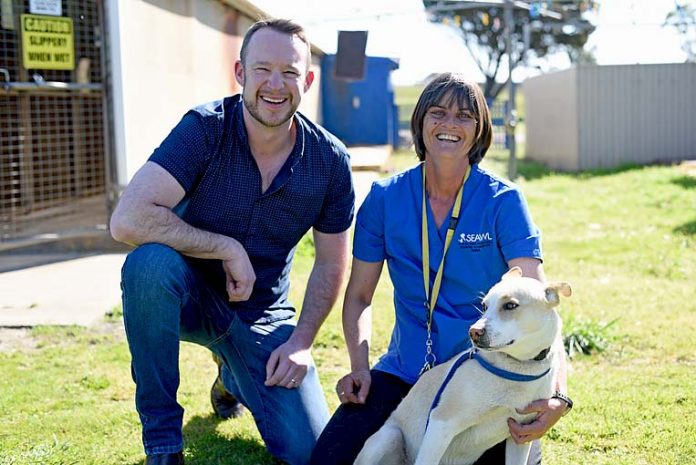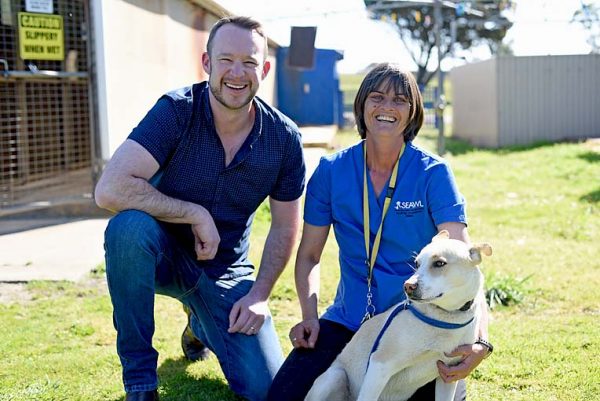

A REVISED funding contract between the South East Animal Welfare League (SEAWL) and two Mount Gambier based councils will see the organisation receive a significant financial boost over the next three years.
The tweaked tri-party agreement has been welcomed by SEAWL after Mount Gambier City Council moved to sign it at last month’s meeting.
Funding of $60,000 – $45,000 from City Council and $15,000 from Grant District Council – will be delivered over the next three years to SEAWL, which in return will be required to meet a number of key performance indicators (KPIs) identified in the agreement.
SEAWL will be required to keep data detailing the number of impounds from each council with information about the outcomes from the impounds.
The will also be required to develop policies with conditions relating to dog and cat intake and all animals sold or released into the community will need to be registered and microchipped before release.
SEAWL president Trevor Twilley said after much discussion with the two councils, the organisation was confident it can meet the KPIs set out in the final agreement.
“It has been a stressful time for the board and staff, but now we have got to this stage, we are confident we can meet those KPIs,” he said.
“We provide a vital service to the community and a critical service to council, so it is great we have some certainty for the next three years.”
It has taken some negotiation to get to this point, with Mr Twilley believing a portion of the initial KPIs outlined in the agreement were setting the organisation up to fail.
“There were obviously a few things in their initially, which had us set up to fail such as providing confidential details about our volunteers, some of who have physical and intellectual disabilities, which are irrelevant,” Mr Twilley said.
“Also it was impossible to meet one of the indicators without access to the Dogs and Cats Online (DACO) system.”
After SEAWL expressed its concerns, Grant District Council has since provided information that such access to DACO will be granted next year with no exact date being given.
As an interim measure, City Council staff will ensure re-claimed dogs have verified registration before being released from SEAWL and re-homed dogs can be released without registration and council will follow up after 14 days.
“We encourage and promote owners to register their animals, but under South Australia dog registration laws a new owner is allowed up to 14 days,” Mr Twilley said.
Mount Gambier councillor Ben Hood said reaching an agreement with SEAWL and the Grant District Council was a great result for the wider South East community.
“It is a great result for SEAWL to have some surety now in what is a very important service for the region and particularly Mount Gambier where majority of the animals come from,” Cr Hood said.
“It is a really great outcome for the City of Mount Gambier and Grant District Council as we have some strong KPIs in place to ensure ratepayers money is being used effectively and efficiently.”
Mr Hood hoped the agreement would allow SEAWL to make improvements across the board and continue to provide an important service to the community.
“As we have discussed in council, things have changed with regards to microchipping and social media and we are seeing dogs and cats that can find there way back to their owners a lot easier,” he said.
“However, there is still a service that is required and SEAWL is still providing that important service and I think with those KPIs locked-in, both councils and SEAWL can work together to see it continue on.”
Despite the local government contributions, Mr Twilley said the service would still require significant community support.
“Our operational costs reach around $200,000 a year, so we still rely on fundraising and the generosity of the community,” he said.
As a result, the last of the KPIs will require SEAWL to demonstrate continued effort to expand its operational financial capability through new sponsorship and donations with audited financial reports forwarded to council’s each year.
Mr Twilley is confident it can continue to source those funds and ensure the safety and security of lost or abandoned animals in the South East.
“Without us who knows where they would be,” Mr Twilley said.
“This result is a relief for everyone, including the animals.”







